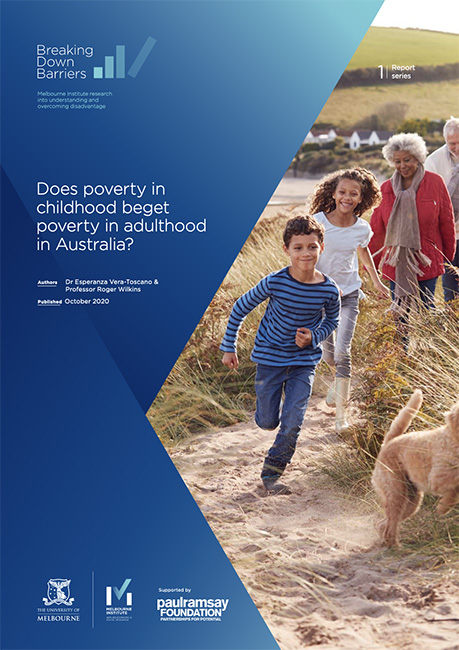Does poverty in childhood beget poverty in adulthood in Australia?
This report explores the intergenerational transmission of disadvantage, providing evidence that experiencing poverty as a child can impact future outcomes.

Experiencing poverty as a child can significantly increase the likelihood of socio-economic disadvantage in young adulthood. Using the HILDA data, this report explores how different levels of poverty in childhood can affect education, employment and health outcomes later in life.
Poverty and socio-economic disadvantage more broadly, continue to be important public policy issues for Australia. 13.6% of the Australian population was living in poverty in 2018; this translates to more than 3.24 million people, including 774,000 children aged under the age of 15.
The findings in this report show that children who grew up in poor households are 3.3 times more likely to be in poverty in adulthood than those who grew up in never-poor households, and the longer the period of time spent in poverty as a child, the poorer the outcomes in adulthood.
Our research further shows that the experience of poverty during childhood is associated with poorer socio-economic outcomes in terms of educational attainment, labour market performance, health and even overall life satisfaction in early adulthood.
While low parental income may be the key driver of the intergenerational transmission of poverty, it is important to investigate the role played by potential mediating factors – including family circumstances and dynamics, socioeconomic characteristics of the neighbourhood, educational opportunities and outcomes, as well as health and access to health care.
Read the full report Request a briefing
AUTHORS
Dr Esperanza Vera-Toscano
Professor Roger Wilkins